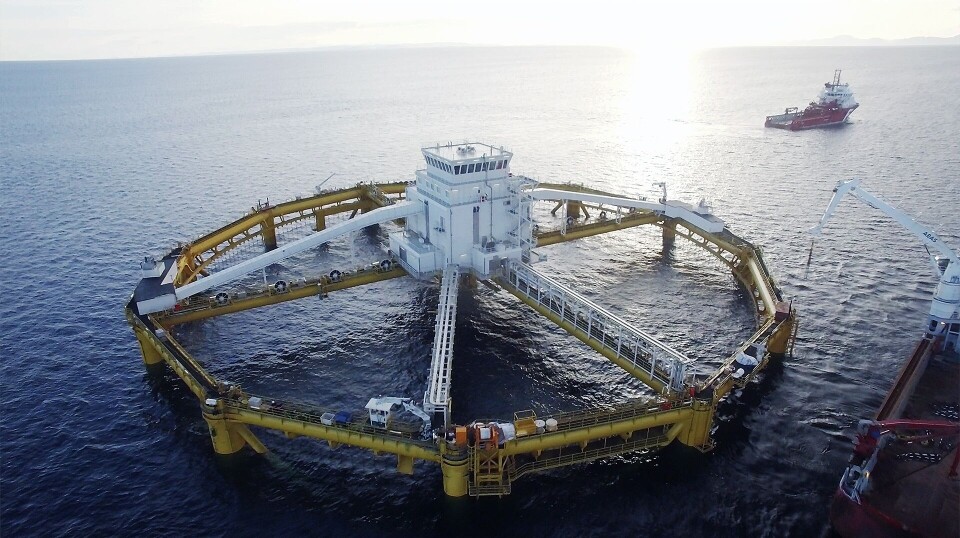
Councils not equipped for offshore fish farm decisions, say scientists
Local authorities must be given a strong role but a science-based 'whole west coast' approach is needed, SAMS scientists tell the Scottish Government
Ocean scientists from the Scottish Association for Marine Science (SAMS) have called for the Scottish Government to take a different approach to plans to extend marine planning zones to 12 nautical miles (nm) offshore to enable aquaculture growth.
Current laws allow fish and shellfish farming out to 12 nm but also restrict marine planning zones to three nautical miles. In practice, this means that there is no designated planning authority to which a developer may apply for a farm located between 3 nm and 12 nm.
Prompted by growing interest from the aquaculture sector to farm beyond 3 nm, the government in Edinburgh intends to extend the zones for fish and shellfish farms to 12 nm offshore and has carried out a public consultation about its proposal. The zones define the areas where local authorities can regulate fish and shellfish farming. However, scientists at Oban-based SAMS believe this is not the right approach.
They have submitted a response to the consultation, which closed yesterday, calling for a regional planning partnership to manage Scotland’s west coast waters from the Mull of Kintyre to Cape Wrath, integrating fish farms with industries like offshore renewable energy. They say a more coordinated, science-based approach is needed to make the most of Scotland’s waters and ensure sustainable development.

The authors of the response have a broad range of expertise. They are: oceanographers Paul Tett and Dmitry Aleynik; marine mammal ecologist Steven Benjamins; marine social scientist Suzannah-Lynn Billing; fisheries ecologist Clive Fox; aquaculture lecturer Adam Hughes; SAMS director Nick Owens; plankton ecologist Callum Whyte; and benthic ecologist Thomas Wilding.
Owens and Hughes have both given evidence to the Scottish Parliament’s inquiries into salmon farming in the past.
Asked whether they agree with the proposal to extend the marine planning zones, the SAMS scientists say no, and claim some local authorities lack sufficient resources to adequately deal either with operational planning or strategic in offshore waters.
Intensifying difficulties
“On the west coast of Scotland, in particular, the area of sea within the 3 nm limit is already very large. Extending planning zones to 12 nm will intensify the difficulties. Furthermore, there is no mechanism attached to this extension to enable potential synergies between aquaculture and offshore renewable energy generation,” they write.
“Finally, it’s also unclear if the statutory consultees for licensing have the resources necessary to support offshore site licensing or to properly police the consents that must accompany planning permission. Whereas problems close to shore are often detected and reported by local people, this is less likely in the case of offshore sites.”
They also argue that marine planning zones “are purely administrative divisions, unrelated to processes in the marine environment that can carry water, wastes and organisms between zones”.
'A single unit'
“Knowledge of currents on the west coast of Scotland suggests that the waters between the Mull of Kintyre and Cape Wrath should be treated as a single unit for strategic planning, operational licensing, and management, and not divided amongst Argyll & Bute, Highlands, and Eilean Siar,” say the SAMS scientists.
“Similarly, the Firth of Clyde behaves as a single water-body and should not be subdivided. Strategic planning - allocation of areas prioritised for aquaculture - should bring together all relevant authorities and take account of cumulative effects from multiple farms and other sea-uses.”
They add that the importance of salmon farming to Scotland’s economy, and the potential contribution of the farming of seaweeds and bivalve shellfish to reducing food-related carbon emissions, mean it is vital to create an effective framework for strategic planning, site permitting, and environmental monitoring of these activities in offshore waters.
It seems to us that the proposed offshore extension to marine planning zones solves only one problem, avoids others, could add to the burden on local authorities, and may make it more difficult for local communities to engage with developments
SAMS scientists
“However, it seems to us that the proposed offshore extension to marine planning zones solves only one problem, avoids others, could add to the burden on local authorities, and may make it more difficult for local communities to engage with developments.”
The scientists suggest that a joint Regional Marine Planning Partnership (RMPP) is set up for the west coast waters, to draw up a zoning plan for the different sorts of aquaculture, taking account of possibilities for multi-species aquaculture and synergies with offshore renewable energy generation.
“In the light of experience with existing RMPPs, careful attention should be given to the composition and operating rules of the joint board: in the interests of democracy and local engagement it should have a strong role for local authorities, whilst also including representatives of key stakeholders and the statutory consultees. There is also a case for including local academic researchers,” advise the SAMS team.
Lack of resources
The largest proposed expansions of marine planning zones are those allocated to the three islands authorities (Shetland, Orkney, Eilean Siar) and to Argyll & Bute, which is itself responsible for many island communities, say the scientists.
“Whereas the Northern Isles have benefited from the special financial powers of their local authorities, the budgets of Eilean Siar and Argyll & Bute are more constrained,” they point out.
“We question whether they have the financial or personnel resources to deal adequately with offshore planning even within the existing 3 nm limit, let alone the extension to 12 nm. In addition, if the Hebridean island communities are to benefit from the servicing of large offshore aquaculture structures, they will need new or upgraded port facilities. It appears therefore that these island communities could be disadvantaged by the planning zone extension, unless there is more support for marine planning and port development.”
Read the full SAMS response here.























































